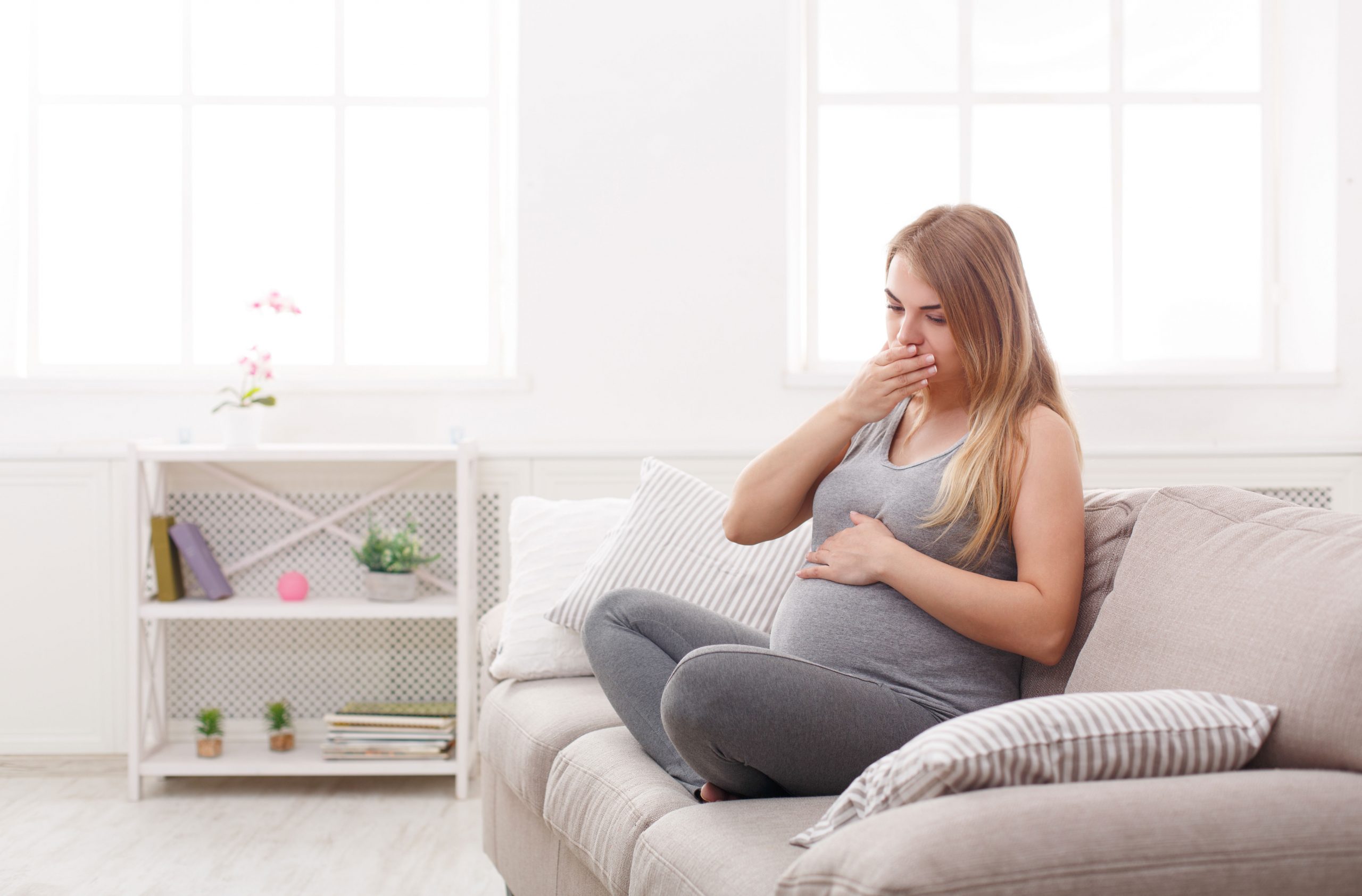Hyperemesis Gravidarum: The signs and symptoms of severe morning sickness
How to tell if it's bad morning sickness or something more severe

Most women suffer from morning sickness during the early stages of pregnancy, but if you're experiencing severe nausea and vomiting after the first 12 weeks, you could be one of the 1 in 100 women affected by Hyperemesis Gravidarum.
You may have steeled yourself for feeling ill and occasionally being sick during your first trimester, but women with Hyperemesis Gravidarum could be sick multiple times a day (some have reported up to 50!) and suffer from more extreme symptoms.
It's a routinely unrecognised condition and actual figures are not known, because it often goes unreported by expectant mothers who believe their experience to just be the norm. But since reports of Kate Middleton suffering from the severe morning sickness throughout both of her pregnancies hit headlines, the condition is becoming more well-known.
For some, symptoms can be excruciating (and in some cases, mothers might even choose to terminate their pregnancy). If you think you might be experiencing more extreme morning sickness than other pregnant women, then your health could be at risk, and it's important to see a healthcare professional as soon as possible.
You should contact Pregnancy Sickness Support association for advice and support from other women suffering with severe pregnancy sickness and nausea.
Here's everything you need to know about Hyperemesis Gravidarum, and how to treat it if you're suffering.
What are the symptoms of Hyperemesis Gravidarum?
As well as excessive vomiting and extreme nausea, women with the condition often report:
Parenting advice, hot topics, best buys and family finance tips delivered straight to your inbox.
- Food aversions
- Weight loss of 5% or more of pre-pregnancy weight
- Dehydration as shown by sunken eyes, dry skin and decrease in urination
- Headaches
- Confusion
- Fainting
- Jaundice
- Extreme fatigue
- Low blood pressure
- Rapid heart rate
- Loss of skin elasticity
- Anxiety
- Depression
Can you minimise the risk of developing Hyperemis Gravidarum?
Dr Rajendra Sharma, an integrated medical GP who specialises in dealing with chronic illnesses, says that prevention is tricky during a first pregnancy as the condition is uncommon and therefore doesn't warrant preventative measures as a general rule. However, if, like Kate, you've experienced Hyperemesis Gravidarum during a previous pregnancy, then you should consider making some dietary changes and other minor adjustments as soon as the pregnancy is confirmed.
'Eat small, frequent meals throughout the day, rather than three large meals, and avoid pungent foods that are likely to aggravate symptoms,' he advises. 'Go for bland flavours, and eat cold foods because they don't smell as strongly as hot foods.'
Fatty foods are also likely to make your symptoms worse. Staying hydrated is essential, although it may be difficult to keep your fluids down. Dr Sharma recommends drinking ginger tea made from fresh ginger, and taking multi-minerals and vitamins like B6. If you can stomach them, drinks made from blended fruit, yoghurt or milk substitutes can be easily consumed and provide essential nutrients if you can't get them from your food.
If you're still struggling, your GP can prescribe pain-medication and anti-sickness drugs.
What causes Hyperemesis Gravidarum?
'The cause of morning sickness during pregnancy is believed to be the rapidly rising blood level of the necessary hormone called human chorionic gonadotropin,' explains Dr Sharma.
'With Hyperemesis Gravidarum the individual sensitivity is high. It is uncertain why this is but it is theorised to be possibly due to poor detoxification through genetic tendency and also possibly due to environmental toxicity sensitising receptors in the body.'
As always, making sure you get plenty of rest and de-stressing whenever possible can help keep you feeling generally healthy, which could lower the chances of developing Hyperemesis Gravidarum. Dr Sharma also recommends exercising comfortably with Yoga or Tai Chi, and sleeping in a low-stress environment, away from electronic equipment and good quality curtains.
The NHS states that whilst severe morning sickness can be a terrible experience for expectant mothers, the good news is it's unlikely to harm your baby, if treated effectively. However, if it causes you to lose weight during pregnancy, there is an increased risk that your baby may be born smaller than expected, or have a low birth weight.
If you have any concerns about the health of you or your baby, you should always seek advice from your care team.
http://www.youtube.com/watch?v=1Aj8Fvj4k9k
Trusted, informative, and empathetic – GoodToKnow is the ultimate online destination for parents. At GoodtoKnow, our mission is 'simple': we're trying to make sense of parenthood. On the site, you'll find everything you need for a happy, healthy family life. Our huge archive of content includes more than 18,000 articles and 1,500 how-to videos. These include expert-backed advice features on parenting, dealing with relationship changes after having a baby, self-care for mums and managing your family finances. We also feature tried-and-tested product reviews and buying recommendations for every stage of family life - from prams and Moses baskets to birthday gifts and top toys.